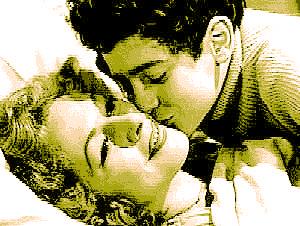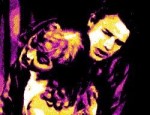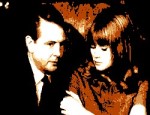Film Review

Later in the decade, Jean Delannoy would become the bête noire of firebrand critic François Truffaut, and so it is strange that Truffaut's own film about childhood rebellion, Les 400 coups (1959), should have such a strong resonance with Delannoy's Le Garçon sauvage. Delannoy's film is far less appreciated today than Truffaut's but its depiction of the traumas and injustices of childhood is just as engaging, and arguably more perceptive. Simon's gradual awakening to his mother's infallibility ought to diminish his love for her, but it doesn't. His love for the mother who abandoned him after he was born and neglects him after she resumes her life with him is unconditional, so he directs his loathing elsewhere, towards the unworthy rival he sees in her lover - an odious lout who passes off forged banknotes and openly carries on an affair with another woman. The characters in Le Garçon sauvage have a depth and tragic reality that make those in Truffaut's film appear shallow.
Whilst it is hard to fault the performances (Madeleine Robinson is particularly praiseworthy, excelling in one of her most nuanced character portrayals), it is Henri Jeanson's script to which the film owes its psychological depth and narrative power. That tendency that adults have to ignore children in their presence is pointedly referenced in a few memorable scenes, such as the one where Marie appeals to her lover to return to her whilst being totally oblivious to the presence of her son, who has just returned to her after a suicide attempt. Delannoy was never a sentimentalist, so the film never becomes mawkish and, as a result, it engages with the spectator's feelings at a much deeper level. Truffaut's portrayals of childhood are tame compared with what Delannoy presents in this film and in his later, even more provocative, coming-of-age piece, Les Amitiés particulières (1964).
© James Travers 2014
The above content is owned by frenchfilms.org and must not be copied.
Film Synopsis
Marie earns a comfortable living working as a prostitute in the French port of Marseilles. Now that she has some stability in her life, she decides to take charge of her twelve-year old son Simon, whom she has placed in the care of kindly shepherd. At first, Simon is overjoyed to be reunited with the mother whom he worships. But the boy's delight soon turns to dismay when he realises how she derives her income. He is even more disgusted by her current boyfriend, Paul, a drunken layabout who seems to be invested with the worst of human vices...© James Travers
The above content is owned by frenchfilms.org and must not be copied.
Similar Films
Here are some other films you may enjoy watching:Other related links:
Film Credits
- Director: Jean Delannoy
- Script: Edouard Peisson (novel), Henri Jeanson (dialogue), Jean Delannoy
- Cinematographer: Robert Lefebvre
- Music: Paul Misraki
- Cast: Madeleine Robinson (Marie), Pierre-Michel Beck (Simon), Franck Villard (Paul), Nicolas Amato (Le complice), Henri Arius (Victor), Edmond Beauchamp (Gilles), Dora Doll (La blonde amie de Paul), Georges Douking (Le paysan), Albert Duvaleix (Le monsieur du taxi), Fransined (Le coiffeur), René Génin (Le premier client de Marie), Janine Miller (Anny Flynn), Raphaël Patorni (Luccioni), Fernand Sardou (L'inspecteur), Henri Vilbert (Capitaine François)
- Country: France
- Language: French
- Support: Black and White
- Runtime: 112 min
- Aka: Savage Triangle
The best of American cinema

The very best of the French New Wave

The greatest French film directors
